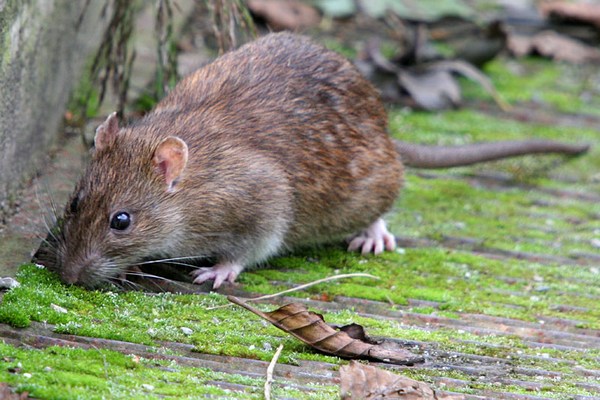To many people, there is nothing more disgusting than a rat. Others see them as just a natural consequence of living in both urban and rural areas. Regardless of how you view them, rats and other rodents can cause a lot of problems for homeowners and businesses alike. At Skedaddle, we know that humane wildlife control in Waukesha, Wisconson, is a big deal, and when it comes to rat myths our customers need to know the facts.
1. Carbonated Soda is an Effective Poison
While you might find it gross to let out a loud belch after downing a can of your favourite pop, a rat’s envy would be palpable. Rats are unable to burp thanks to their digestive system’s layout. This means that gas buildup has nowhere to go, leading many people to believe that leaving bowls of cola around will act as cheap and relatively harmless rodent poison. Unfortunately, all that’s going to do is leave your local rats searching for the other snacks to go with the suds.
While carbonation can certainly make rodents uncomfortable, the amount of soda a rat would consume from such a “trap” would have little effect. Some people think it’s the caffeine that’s the real reason cola makes a great poison, but the truth is quite different. Rats don’t drink enough while quenching their thirst, so all those traps are really doing is acting as a sweet, syrupy bait for more midnight munchers.
2. Rats Are Always Friendly
Mice, hamsters and other rodents have been household pets for thousands of years. This has lead to the myth that rats can be quite friendly and may lead people to think it’s OK to approach them in the wild, though it couldn’t be further from the truth. While rats aren’t traditionally aggressive, they will attack if cornered. This is especially true if you’ve attempted to capture them yourself, as a rat in a trap may be vicious indeed. It’s better to call wildlife control in Waukesha instead of approaching the animal yourself.
3. Disease-Ridden Rats Are a Thing of the Past
As far as sickness goes, rats have long been associated with outbreaks like the Black Death. However, there is a belief that rodents are much less prone to be carriers nowadays. Rats are excessively clean animals, true, but that doesn’t mean they’re good for your health. A rodent bite can still transmit a host of diseases, such as salmonella, hantavirus and even Hemorrhagic Fever.
4. Rats Hate/Love Cheese
This is one of those simple myths that everyone’s grandmother weighs in on. In reality, rats are like people in this respect. Most are lactose intolerant, so eating cheese and other milk products might leave them with a belly ache. However, just like many people, nothing can stand in the way of a hunger-wracked rodent and some available cheesecake!
5. Rats Nest Only in Abandonded or Run-Down Places
It’s hard to ignore the image of rats scurrying through sewer tunnels and ruined buildings. The media portrays rodent infestations as something that only occurs in filthy or semi-demolished areas. In reality, rats are only interested in three things: food, water and shelter. If they can find these necessities in abundance, it doesn’t matter the location. Even the cleanest kitchens can be havens for hairy hunters if they can get their little paws on some grub.
Because rats can be found anywhere, once a problem starts it can easily get out of control. With proper wildlife control in Waukesha, though these issues can be a thing of the past. Contact Skedaddle Humane Wildlife Control today if you see signs of a rodent infestation. Our expert team is ready to take care of renegade rodents in a manner that’s safe for both you and your unwanted guests, and that’s no myth!



